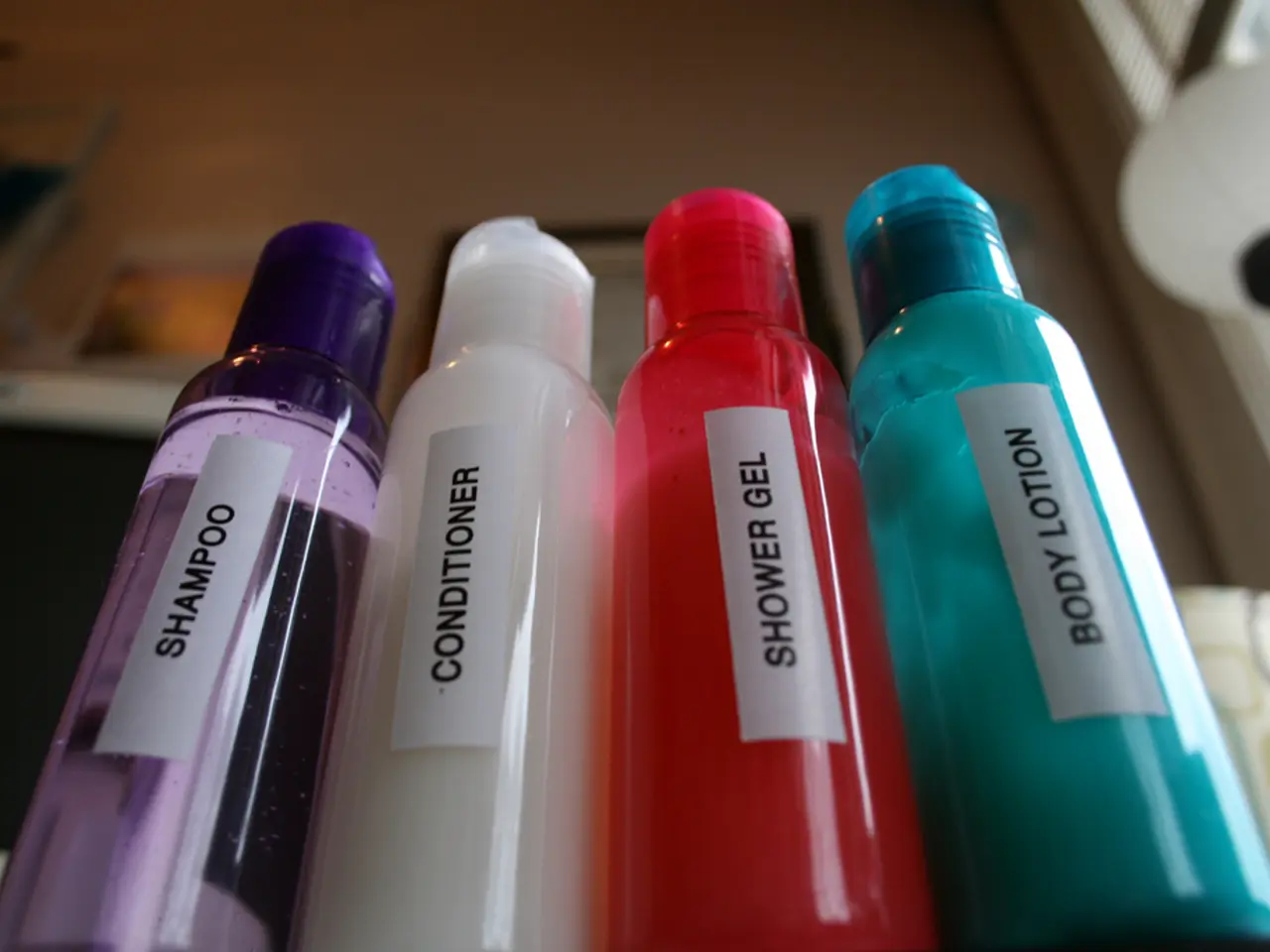Is keratin originated from animals, and what are appropriate formulations for vegan consumers?
In the ever-evolving world of beauty and personal care, a significant shift has been observed towards cruelty-free, vegan products. This trend is particularly noticeable in the hair care segment, where the demand for vegan keratin products is on the rise.
Last year, 'Vegan' was among the top five claims within the natural/organic BPC market, reflecting the growing consumer interest in animal-friendly alternatives. This trend aligns with the increasing concern for animal welfare, especially as it pertains to the wider environment. The COVID-19 pandemic has further emphasized the prioritization of cruelty-free products, with 67% of Gen Z stating they would stop using brands that use unethical practices, and 55% only using cruelty-free products.
Traditional keratin, derived from animals, is not vegan. However, the beauty industry is innovating to meet this demand, creating plant-based alternatives. Keratin, an essential protein in the structure of hair, provides strength, structure, and elasticity. It strengthens hair by forming a protective shield around the hair shaft, enhancing hair appearance, providing a smoother texture, increasing elasticity without risk of breakage, adding shine and vibrancy, and protecting against environmental factors such as UV radiation or pollution.
Plant-based formulas can mimic the properties of keratin, offering a sustainable and cruelty-free solution. Cosmetic brands are using rice and wheat to generate plant-based proteins for vegan keratin products. Hydrolyzed proteins extracted from grains like rice or wheat can act as a vegan keratin treatment.
These plant-based components replace traditional animal-derived keratin and harmful chemicals, making vegan keratin treatments safer, eco-friendly, and suitable for sensitive scalps. Specific plant-based ingredients used in the synthesis of vegan keratin treatments include hydrolyzed wheat protein, organic acids, amino acids, and botanical extracts such as Panax ginseng root extract, Urtica dioica (nettle) extract, camu camu, annatto seed, açai berry, and natural oils like acai, andiroba, and maracuja oil.
These ingredients work together to strengthen, hydrate, and smooth hair without the use of harsh chemicals or animal-derived keratin. For instance, hydrolyzed wheat protein is a plant protein that mimics keratin, aiding in hair repair and strengthening. Organic acids and amino acids help rebuild hair structure gently and naturally. Botanical extracts like Panax ginseng and Urtica dioica provide nourishing and antioxidant benefits. Indigenous Brazilian plant ingredients such as camu camu, annatto seed, and açai berry are used for hydration and frizz reduction while adding shine. Plant oils (acai, andiroba, maracuja) contribute to hydration and hair health, creating a protective, smoothing effect.
Examples of such vegan keratin products are Aura Smoothing Treatment by Lakmé and Magic Sleek, which emphasize plant-based, formaldehyde-free formulas. The rhodiola complex is also used in some plant-based hair care products for holistic hair care.
The particular amino acid sequence of keratin varies for each specific type of keratin and its location. However, the beauty industry is finding ways to replicate these sequences using plant-based ingredients, ensuring the effectiveness of vegan keratin treatments. Formulating vegan keratin alternatives is of particular concern in the industry where natural, plant-based claims are becoming the new key brand differentiator.
In conclusion, the rise of vegan keratin in hair care is a testament to the industry's commitment to sustainability, animal welfare, and consumer safety. With the growing demand for cruelty-free beauty, it is expected that vegan keratin treatments will continue to gain popularity, offering a viable and beneficial alternative to traditional keratin treatments.
- In the realm of clean beauty and health-and-wellness, vegan keratin products are becoming increasingly popular, aligning with consumers' growing interest in animal-friendly alternatives and sustainable skin care.
- The active ingredients of these plant-based solutions often include hydrolyzed wheat protein, organic acids, amino acids, botanical extracts, and plant oils, which work synergistically to strengthen, hydrate, and smooth hair without using harsh chemicals or animal-derived keratin.
- The integration of fitness-and-exercise and vegan keratin illustrates how the wellness lifestyle extends beyond diet and exercise, as consumers prioritize cruelty-free beauty and eco-friendly solutions.
- The beauty industry's focus on vegan keratin reflects the broader trend of innovation driven by science, as brands seek to create effective, cruelty-free alternatives that cater to the changing preferences of fashion-and-beauty-conscious consumers.




